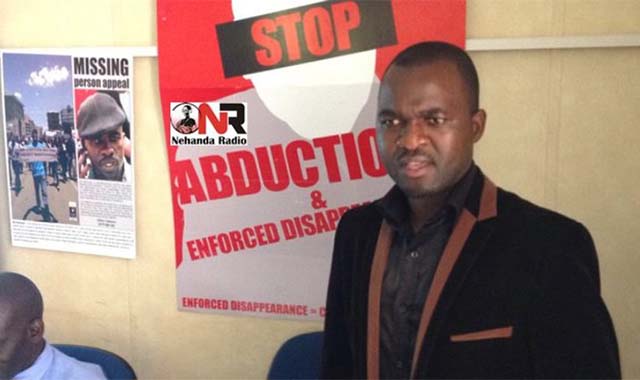Court stops Unity Square demos

Senior Court Reporter
THE High Court has upheld the police’s decision to bar Patson Dzamara and his four colleagues from monopolising the Africa Unity Square in Harare and staging their demonstration, saying their activities were likely to degenerate into civil unrest.
Dzamara, Linda Masarira, Dirk Frey, Tatenda Mombeyarara and Pride Mkono had filed an urgent chamber application at the High Court seeking an interdict stopping the police from interfering with their Occupy Africa Unity Square demonstrations.
Justice Amy Tsanga ruled that even if the five tried to convince the court that the demonstration would be peaceful, there is a likelihood that it would turn violent.
“Even if the protest being touted by the applicants is as peaceful, indignation at the current state of affairs, with masses of discontented people for one reason or another, it would very easily degenerate into a non-peaceful protest.
“It cannot be said that overall police action in this case amounts to a disproportionate restriction on their freedom of assembly and their right to demonstrate since prevention of crime, as part of public security is a legitimate reason for imposition of restrictions on a demonstration that has shown propensity for degenerating into unlawful activities,” said Justice Tsanga.
The judge said occupation of Africa Unity Square, a public space for all citizens, by a minority group of protesters was tantamount to monopolising the place and infringing on the rights of others.
“Equally, they did not speak in their response to the concerns raised, regarding infringing the rights of others, given that Africa Unity Square is indeed extensively used on a daily basis by members of the public.
“Offices and businesses also surround the square.
“Continuous demonstrations do create potential health and safety issues, traffic and sanitary problems, all of which cannot be overlooked by those who seek to take over such public spaces,” the court said.
The court also held that the application lacked urgency and that it cannot be heard as an urgent matter.
Justice Tsanga removed the matter from the urgent court roll.
The decision was reached after convincing arguments by Government lawyer Mr Tymon Tabana that the matter was not urgent and that the rights of the minority group could lawfully be restricted if they interfered with those of the others.
This means the police could continue keeping an eye on the group and bar them from carrying out the demonstrations. In the application, the five argued that the police were infringing on their rights.
They argued that their rights to personal security and freedom from violence were being violated by the police who were in the habit of beating them up whenever they dispersed them.








Comments